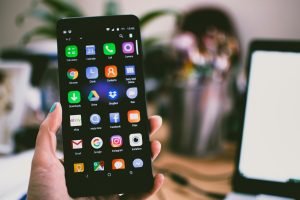Digital Hygiene: Best Practices for a Healthier Online Life
In today’s hyper-connected world, our digital lives are as important as our physical ones. Just as we maintain personal hygiene to stay healthy, practicing digital hygiene is essential for protecting our online presence, mental well-being, and overall security. Digital hygiene refers to the habits and practices that help us use technology safely, responsibly, and efficiently. Here’s how you can improve your digital hygiene and enjoy a healthier relationship with technology.
1. Use Strong, Unique Passwords
One of the simplest yet most effective ways to protect your accounts is by using strong, unique passwords for each platform.
- Avoid common phrases or easily guessable information like birthdays or pet names.
- Opt for long passwords that include a mix of letters, numbers, and symbols.
- Consider using a password manager to generate and store complex passwords securely.
Additionally, enable two-factor authentication (2FA) wherever possible. This adds an extra layer of security by requiring a second form of verification, such as a text message code or fingerprint.
2. Regularly Update Your Devices and Software
Outdated software is a common entry point for hackers and malware.
- Keep your operating system, apps, and antivirus software up to date.
- Enable automatic updates whenever possible to ensure you’re always running the latest versions.
These updates often include patches for security vulnerabilities that could otherwise expose your data.
3. Be Mindful of What You Share Online
Think twice before posting personal information on social media or other platforms.
- Avoid sharing sensitive details like your home address, phone number, or financial information.
- Adjust your privacy settings to limit who can see your posts and profile.
Remember, once something is online, it can be difficult to remove completely. Practice the “pause before you post” rule to avoid oversharing.
4. Protect Your Data with Encryption
Encryption ensures that your data remains private and secure, even if intercepted by unauthorized parties.
- Use encrypted messaging apps like Signal or WhatsApp for private conversations.
- When browsing the internet, look for websites that use HTTPS (indicated by a padlock icon in the address bar).
Encryption safeguards your information from cybercriminals and prying eyes.
5. Limit Screen Time and Take Breaks
Excessive screen time can negatively impact your mental and physical health.
- Set boundaries for how much time you spend on devices, especially social media and entertainment apps.
- Use tools like screen time trackers or app blockers to monitor and control your usage.
- Follow the 20-20-20 rule : every 20 minutes, look at something 20 feet away for 20 seconds to reduce eye strain.
Taking regular breaks from screens helps improve focus, reduce stress, and promote better sleep.
6. Secure Your Wi-Fi Network
Your home Wi-Fi network is a gateway to your devices, so it’s crucial to keep it secure.
- Change the default password on your router to something strong and unique.
- Use WPA3 encryption (or WPA2 if WPA3 isn’t available) to protect your connection.
- Avoid using public Wi-Fi for sensitive activities like online banking; instead, use a Virtual Private Network (VPN) to encrypt your traffic.
7. Back Up Your Data Regularly
Losing important files due to hardware failure, theft, or ransomware can be devastating.
- Regularly back up your data to an external hard drive or cloud storage service.
- Automate backups to ensure you never forget to save your files.
Having a backup ensures you can recover your data quickly in case of an emergency.
8. Be Cautious with Links and Attachments
Phishing scams are a common way for hackers to steal your information.
- Avoid clicking on suspicious links or downloading attachments from unknown senders.
- Verify the sender’s email address and double-check URLs before entering any personal information.
When in doubt, contact the organization directly to confirm the legitimacy of the request.
9. Clean Up Your Digital Space
Just like decluttering your home, tidying up your digital space can improve efficiency and reduce stress.
- Unsubscribe from unnecessary emails and newsletters.
- Delete unused apps, old files, and duplicate photos to free up storage space.
- Organize your files into clearly labeled folders for easy access.
A clean digital environment makes it easier to focus and stay productive.
10. Educate Yourself About Online Threats
Staying informed about the latest cybersecurity trends and threats is key to maintaining good digital hygiene.
- Learn how to recognize phishing attempts, scams, and fake websites.
- Stay updated on best practices for online safety through trusted resources.
Knowledge empowers you to make smarter decisions and protect yourself from potential risks.
Conclusion
Practicing digital hygiene doesn’t have to be complicated. By adopting these simple habits—using strong passwords, limiting screen time, securing your data, and staying informed—you can significantly enhance your online safety and well-being.
Remember, just as physical hygiene keeps you healthy in real life, digital hygiene ensures a safer, more enjoyable online experience. Start implementing these tips today, and take control of your digital life!













Kommentar veröffentlichen